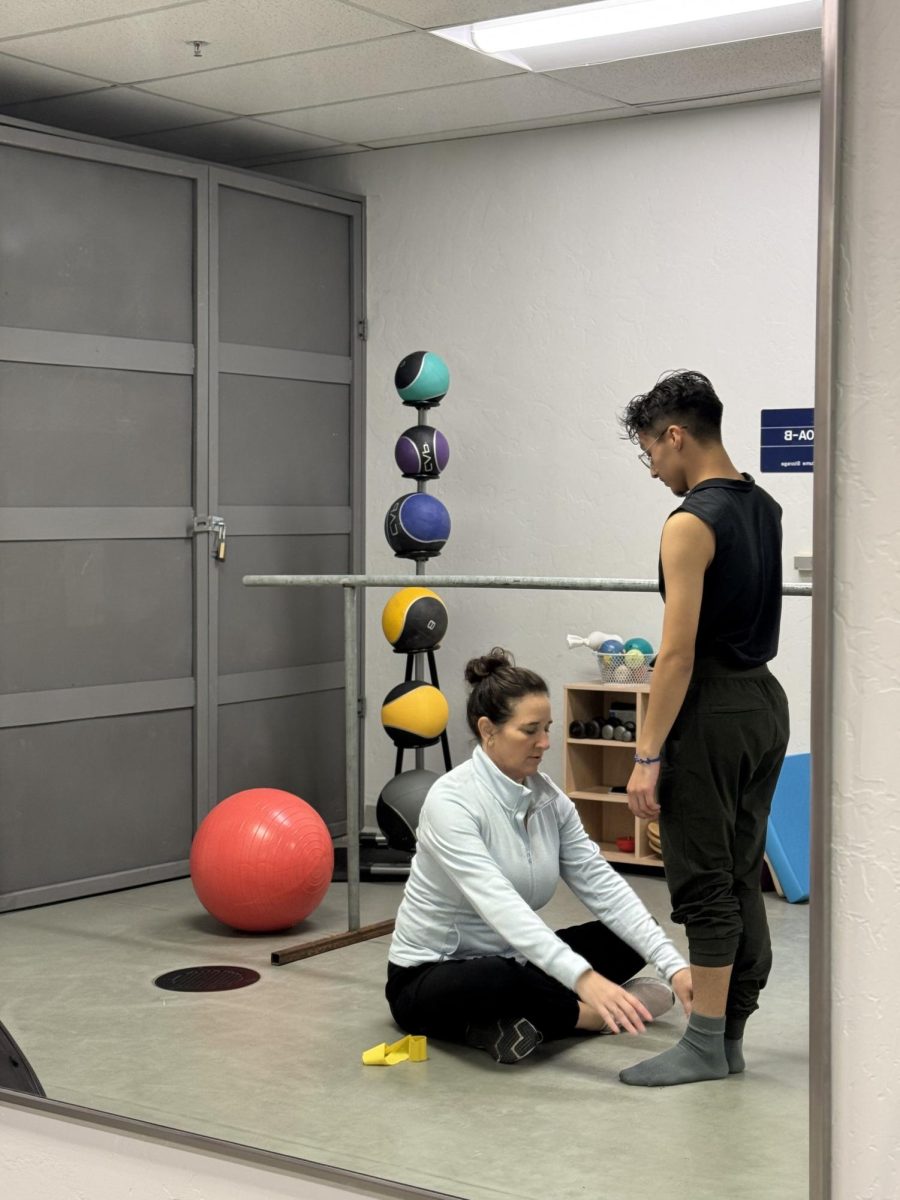At the University of Arizona, where Instagram feeds flood with influencers and campus conversations often center on appearance, college-aged students find themselves at the crossroads of social pressure and self-image.
This environment leaves them especially susceptible to eating disorders and disordered eating, driven by campus culture, social media, and societal expectations.
Lisa MacDonald, the Nutrition Services manager and the co-chair on the Eating Disorder Assessment (EAT) team, sees these challenges firsthand.
Through her role providing nutrition counseling to students, she works to address the complex factors contributing to disordered eating while promoting healthier habits and self-perception.
MacDonald said that diet culture impacts people of all ages, but the heavy use of social media among college students plays a significant role.
Social media often reinforces weight stigma and beauty norms, promoting the idea that we must look and eat a certain way. There’s also a lot of moral judgment around food, labeling it as “good” or “bad,” which adds to the pressure.
“We have lots of students coming to us that have included or excluded foods based on whatever the trends are on Tik Tok,” MacDonald said. “I’ve gotten to the point with patients I’ve been seeing for a while, they’ll start reporting I’m eating cottage cheese this, and cottage cheese that,’ and I’ll stop. And I’m like, ‘What’s happening on Tik Tok with cottage cheese.’
Campus influencers play a significant role in amplifying these trends. With large followings and relatable content, they often shape the eating habits of their peers by promoting fad diets or workouts, which quickly gain traction across social media platforms.
Liv Schmit, an Instagram and TikTok influencer and former University of Arizona student, has built a significant following by sharing fitness tips, meal prep ideas and glimpses into her daily life. She has over 100,000 followers on Instagram. Her content often resonates with college students striving to balance busy schedules while maintaining a healthy lifestyle.
However, her platform also reflects the dual-edged nature of social media’s influence on eating habits.
While some followers find inspiration in her posts, others may feel pressured to emulate her routines or adopt restrictive eating patterns. This dynamic highlights how campus influencers like Schmit can unintentionally perpetuate diet culture and contribute to the normalization of disordered eating trends among students.
Caitilin McKenna, a registered dietitian nutritionist with a background in clinical nutrition, holds one-on-one counseling at Campus Health, helping students build positive relationships with food, body image, and movement.
“I think college students are so malleable, they’re really adaptive, and they’re open to learning new things,” McKenna said. “It’s such a big time of change, they’ll learn some things, and then they take them to heart. And we find that sometimes it’s easy to change those learned beliefs, and sometimes it is a challenge. We see folks that are really stuck in their ways and will not deviate from what they have learned or seen… this is the first time they’ve ever had to figure out food and schedules and how to cook and how to be on their own. And so it’s a vulnerable time for that as well.”
McKenna mentioned how while the University of Aarizona specifically is renowned for its academics, there are a lot of aesthetically attractive people in smaller bodies on our campus.
“That’s just the general population here,” McKenna said. “And we are in a hot climate, so people don’t wear a lot of clothes naturally. People are in sports bras and shorts, and they’re entitled to wear what they want. But for a lot of people that don’t have that thin ideal body, it’s a constant comparison of, ‘they can wear that, but I can’t,’ and it’s a tough school to be in.”
Normalized disordered eating behaviors are on college campuses, McKenna and MacDonald said.
“We’re doing a lot of education with our patients and in general,” MacDonald said. “It’s actually better to fuel your body all day. You’re going to feel better, function better, sleep better, study better, do better in school, all those things. But there’s so much normalized behavior, they don’t even realize there’s any kind of disordered eating going on; it is what is being modeled all around.”
The lack of traditional dining halls at the UA often seen as a drawback might actually benefit students’ relationships with food, according to McKenna and MacDonald. Unlike the buffet-style, all-you-can-eat setups at other universities, our system encourages more autonomy and portion control. This structure may help students avoid the binge-restrictive cycle often associated with overeating in dining halls, promoting healthier eating habits overall. Although, there are still some all-you-can-eat options on campus in places such as the Honors Village.
“”We often hear from students that there are no healthy options on campus, so we use it as an opportunity to explore their choices,”MacDonald said. “‘Have you tried this eatery or that market?’ The issue, though, is brand recognition. When students walk into the student union, they see familiar names like Panda Express, Chick-fil-A, and the pizza place. The healthier options, like Core, IQ Fresh, Enrich Urban Market, and Cactus Grill, are often overlooked because they lack that same brand familiarity for students.”
Cambria Swanson, the vice president of Member Development in Kappa Kappa Gamma, said how she thinks sorority girls are some of the most vulnerable students to disordered eating on campus.
Swanson believes the sorority environment needs to directly talk about diet culture either through seminars or open conversations. It is also important to promote a healthy, inclusive environment by providing a variety of healthy choices during meal times. A lot of fraternity and sorority students eat at their Greek-life facility rather than the other on campus options.
“Our sorority strongly focuses on wellness and self-image. Our philanthropy is mental health, so we are constantly encouraging our sisters to take care of their well-being. Specifically, this week we have our Wellness Week, where we are hosting events and meetings to encourage mental health and raise money for our philanthropy,” Swanson said. “We also frequently remind our members of the Kappa resource, TalkSpace, where members receive free mental health therapy. Our Executive Board is very welcoming and encourages members to have conversations with us if they are ever struggling or need someone to talk to.”
Arizona Sonoran News is a news service of the University of Arizona School of Journalism.










